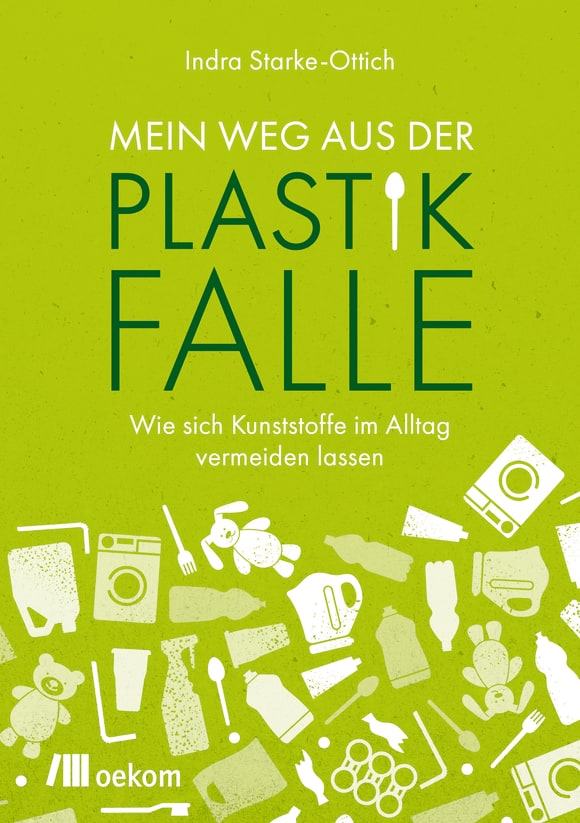Search the Blog
Latest Comments
Tales from the Summer Break (4)
Our home-made bars, and the mostly home-made other foodstuffs, meant that we had a very manageable amount of rubbish accumulating on the trip. Also a good thing, because you are required to take everything along with you for the whole journey, there's no waste disposal along the trekking route. Because I was curious, I weighed our rubbish upon our return... and it was 140 g of plastics. (That's not counting the ziplock bags we had at home and brought along, which will be re-used.) We had thrown away about 10 g previously, at the camping place in Ostrov, and of course there was a good amount more of it when preparing the things at home, in form of the packaging for the ingredients used. It was not much in comparison to some of the other hikers on the trail - due to the homemade bars, and not using convenience food, regular or hiker-specific. It was still quite a bit, though.
So many things are still sold in plastic. Even organically grown stuff - which is especially hard for me to understand. I can sort of get it when it's soggy stuff that is being sold, or moist and oily things, but dried beans, or grains, or pasta? Please, come on. These can very well live in paper packaging.
This feeling of it being too much plastic by far was reinforced when we came back home: Indra Starke-Ottich's book "Mein Weg aus der Plastikfalle" had arrived during our time away, and was waiting for me on our table. I confess I bought the book mostly because I wanted to support Indra's cause, not because I thought I actually needed it.

Well. I now know that I did need it, and a lot of other people might also need it. The book is written in a very nice manner, with a wonderful voice that pleased me throughout. It was a gruesome read, though - and really drove home the necessity to change our ways, and our consumption, as much and as quickly as possible. I did know that plastic is not good, but did not realise how big a problem plastic poses for the environment. It basically never degrades, only falls apart into smaller pieces, which can then be consumed easily by animals and people... with the result of the average person eating about one credit card's worth of micro- and nanoplastics per week. Per week! Eeek!
Reason enough for us to look over our lifestyle again, and make a few more changes. One of them, for me, was installing an app called "replace plastic", which aims to show the makers (and packagers) of things that their customers do not want everything plastic-wrapped. Once you have the app installed, you enter your name and postcode. Then, whenever there's an item you use, or would like to use, you can scan the barcode; the app will pass the request on to the manufacturer once 20 people have scanned this item or after about 4 weeks, whatever happens earlier. That is a very quick, very pain-free and easy way to ask for a more environmentally-friendly packaging!
Another change is that I will be much more consequent in getting foods without plastic packaging. Foodstuff packing is, like probably everywhere, where the bulk of our plastic waste comes from, even though we've been trying to reduce that for a good while now. We've switched to milk in glass bottles and, more recently, we're getting our milk as raw milk directly from the farmer, and we found a source for quark in deposit glasses. (The quark costs more than twice as much as the plastic version, but it's organic as well, which means the cows do get better treatment. Our milk is actually cheaper by about the same factor now, as it's sold directly by the farmer, who will earn more per litre of milk sold at that price than for selling to a dairy factory.)
For the other food things, there's fortunately a few online shops offering plastic-free things that are hard to get locally, such as poppy seeds. Finding those involved some internet surfing, and some checking and comparing of prices to get an indication of what is sensible, and what is not. And now it's just getting those changes done, one step at a time, until they are the new and comfy way of doing stuff...
Comments 1
Because of a 'significant life event' during lockdown, we're reassessing too, but with the first priority being what keeps everyone well. We also have the advantage and disadvantage that there's been no in-person help or advice available, so we've been making it up as we go along and sticking to what works.
Plastic microbeads can be found in make-up and frightfully nice 'essential' personal and environmental cleaning products. First step: stop using them. The basic versions never stopped working.
In addition are the chemicals. Friends in a similar position who bought plastic, believing it to be essential, tip a bucketful of sterilizer used to clean it down the sink every day. They were horrified to hear that our sterilizer is still in the loft, we get by fine without the plastic and the NHS-sanctioned experts told us that if we were to use plastic, sticking it in the dishwasher on a higher temperature is good enough.



